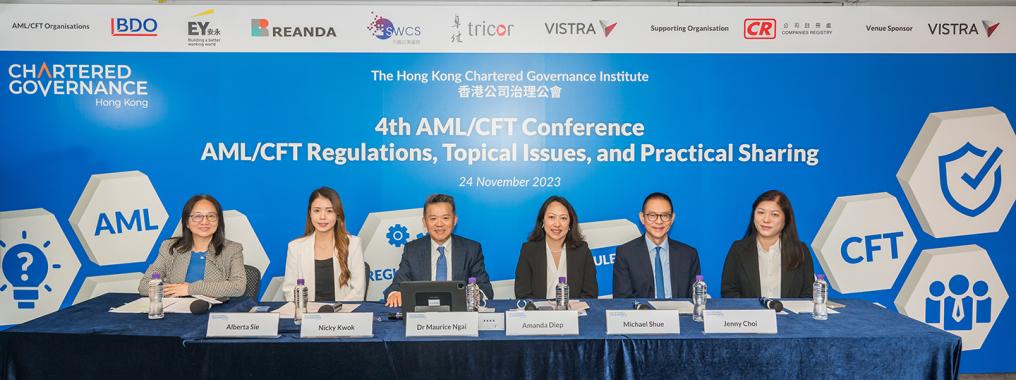Paul Murphy, Head of ESG, Asia Pacific, Georgeson, talks to CGj about the new International Sustainability Standards Board (ISSB) reporting standards and how they will impact companies in the Asia Pacific (APAC) region, from an ESG advisory perspective.
Highlights
- companies that already opted into disclosure frameworks prior to the ISSB standards will have an easier uplift than those that haven’t yet started their journey, as reporting will be mandatory, particularly in relation to climate risk disclosure
- the first hurdle will be collecting the data and the volume of information that is required, as well as an increased focus on supply chains, but that is only the beginning – just having the data out there is not an end in itself
- APAC businesses with a big presence in Europe will need to comply with the European disclosure directives, which are based on double materiality, and this will add another layer of complexity to the landscape
Thank you for giving us this interview. How easy do you think it will it be for the companies you deal with in APAC to meet the new ISSB standards?
‘The first thing I’d say is those companies that were already opting into some of the disclosure frameworks that came before ISSB–like the Task Force for Climate-related Financial Disclosures (TCFD) and the Sustainability Accounting Standards Board frameworks – will have a much easier uplift than those that have not really started yet.
The challenging thing for companies that haven’t really started their journey just yet is that it’s going to be mandatory, particularly in relation to climate risk disclosure. There’ll be some leeway given in the early years for things like Scope 3 greenhouse gas (GHG) emissions, which are the most challenging component, but for Scopes 1 and 2, and for the metrics and targets, as well as the governance and strategy components, that’s pretty much on the horizon for Hong Kong issuers’ reporting from 2025.’
Because the ISSB standards are voluntary, is there a risk that some companies will just ignore them? Or do you see these becoming mandatory across the board?
‘I don’t think companies will be able to ignore them. There are slightly different regulatory timetables and structures for mandatory implementation across APAC – in some cases it is the government, in other cases it is the accounting standards authorities, the securities regulators or the stock exchanges, depending on the circumstances of the different markets – but climate disclosure is going to be mandatory, if it is not already.
For example, here in Hong Kong, it is Hong Kong Exchanges and Clearing Ltd that is making it mandatory for listed companies to adopt the ISSB’s framework for their approach to managing climate-related risks and opportunities, which will have the force of the Listing Rules. And that is also happening in a number of the major regional APAC markets, including Australia, Singapore, Malaysia and Japan. New Zealand has had mandatory climate disclosure for a couple of years already, so they are a world leader in that sense. The US has a different sort of framework through the Securities and Exchange Commission. This will be challenging everywhere – it’s not like anyone has got this nailed just yet or has the perfect answer.’
What do you think will be the hardest tasks for companies in terms of raising their standards to be ISSB compliant?
‘Apart from the Scope 3 GHG emissions reporting that we have already mentioned, I think the first hurdle will be getting the data, as well as the volume of information, that is required. A lot of that is going to involve extracting information out of all sorts of internal sources and from external parties. If you’re measuring carbon emissions, for instance, that’s not necessarily the kind of data that companies will have to hand. They might instead need to consider engaging specialists to help them.
one of the governance tools that an investor will be looking at is the skills matrix on a board, particularly in relation to climate competency
Also, there’ll be a lot more focus on supply chains, both upstream and downstream. We are already experiencing this in most markets – companies are starting to receive a lot of requests for proposal (RFP)-type documents from both customers and suppliers, because they’re going to need those to comply with their own reporting obligations. It’s not just getting questionnaires from investors anymore, it’s also getting them from your own supply chain. Everybody will have to have this baseline level of disclosure.
The ISSB has built on the four pillars of the TCFD framework, which puts governance at the top. Then comes strategy, then risk management and lastly the metrics and targets. At the moment, a lot of people are just in the weeds of the metrics and targets. I think what’s going to have to happen is an uplift into those higher levels of oversight, which is squarely in the world of directors and corporate governance. A lot of us in this field say that ESG actually begins with G – it’s not just about the environmental metrics as ends in themselves. This will therefore be another massive change for companies and is still a work in progress.
Investors will be looking closely at what a company is doing with all the data, how that feeds into the strategic planning and what the governance layer is around this. They will need to have confidence that the board understands the strategic challenges and what that means for the future of the business. If you set a net zero target, for example, and you’ve got an interim target for 2030, that’s not really that far away. What are you going to do in terms of adjusting your investment portfolio or changing your supplier arrangements to hit those targets? Just having the data out there is not an end in itself.’
How is all this going to affect the boards? What would you like to see happen on boards and how will they need to change?
‘One of the governance tools that an investor will be looking at is the skills matrix on a board, particularly in relation to climate competency. Experience in oversight of major transitions, such as the energy transition, would be an advantage. In the financial services sector for instance, if entities are providing finance into the energy and resources sector, it’s going to be really important that they’ve got the capabilities at board level to know which questions to ask and how to guide management on implementing strategy.
As a specialist shareholder engagement and communication company, at Georgeson we do a lot of work helping boards with their engagement with institutional investors. ESG is very much an extension of this and, as we move deeper into the world of broader director accountability, we are working more on advising companies and their boards on implementing the ESG reporting frameworks and understanding what their investors are looking for. Many companies listed in Hong Kong, for example, are trying to diversify their shareholder base and attract more capital, particularly from offshore institutional investors. Boards are therefore going to have to get much more involved in shareholder engagement, including with minority shareholders. So there’s a commercial dynamic at play, as there’s a limit to how much you can stay as just a locally listed entity. If you want to get allocations from global asset managers and big pension funds, then they are going to be much more engaged in ESG discussion and long-term shareholder value discussion, especially for index funds and large pension fund investors.
For institutional investors, the main ways to contribute to long-term value creation are through advocacy for higher disclosure standards and engagement with boards. And ultimately the sanction will be action against directors – you don’t get to vote on someone’s ESG report, but if you’re concerned about the level of oversight and strategy, then, if it’s not addressed, you’ll find it will be reflected in adverse voting on such things as director re-election or remuneration. It is very important that boards are aware of this and that they draw a line back to the G part of ESG, and that’s where both the upside and the downside of the institutional investor engagement comes in.
At the end of the day, regulation will only take you so far. You really want directors to be engaged in the strategy, investors to clearly appreciate what companies are trying to achieve and regulators to be content with progress. So there’s always going to be a balancing act between all those different parties.’
From an investor’s viewpoint, what can you tell us about the difference between single materiality and double materiality, and how will that affect the APAC companies you work with?
‘The ISSB standards are based on the concept of single materiality, which considers the impact of material sustainability issues on a company’s financial performance. This is what the portfolio investors and providers of financial capital, whether equity or debt, really need to know. The investors in the APAC companies I work with will be looking primarily through this prism of financial materiality.
However, issuers with multinational operations, especially if they have a certain threshold of business activities in Europe, will need to get to grips with the EU’s Sustainable Finance Disclosures Regulation, which is based on the notion of double materiality. This means that companies not only have to address the impact of climate change, for example, on their enterprise value, but will also be accountable for the social and environmental impact they have on the outside world. This is a much more ambitious task than the ISSB framework that has been adopted elsewhere.
Perhaps a good way for issuers in this part of the world to look at it is that double materiality is still a good framework for the wider stakeholder groups, such as communities, employees and customers – and to cater to those audiences a framework like the Global Reporting Initiative remains very useful. However, for the specific needs of investors in APAC-based jurisdictions, what you really need to focus on with the ISSB standards is financial materiality.
APAC companies with a big presence in Europe will need to comply with the European disclosure directives and this will add another layer of complexity to the landscape. I’d say that double materiality has an important place in broader stakeholder outreach, and remains especially important in industries that are consumer-facing and/or have significant environmental and social impacts. But I can’t see that the ISSB framework and its related legal structures would have been adopted if it had been based on a double materiality standard, as some civil society stakeholders would have preferred.’
What role do you see governance professionals, in particular company secretaries, playing in all this?
‘What these reporting standards are really going to do is force companies to look at the internal communication between different siloed departments, such as corporate affairs, communications, investor relations, and risk and sustainability teams. One of the changes that these standards will bring in is a requirement for sustainability disclosure to be reported in the same publications and in the same time frame as the financial reports. The accountability for all of this is going to fall squarely on the shoulders of directors, so they will need to have a very clear line of sight.
Once the new standards reach maturity, accountability for the ESG disclosures will be just as testing as it currently is for financial disclosures under the International Financial Reporting Standards (IFRS) and integrated reporting principles. Boards will need to have assurance that their team is doing the right thing and also not straying into the flip side of all this, which is getting into greenwashing–or even greenhushing, which is the new thing. Regulators are incredibly sensitive to this.
This is where the governance professional and the company secretary can play a vital role as the hub to bring together the internal coordination and connected thinking.’
What do you envisage for the ISSB standards going forward, and what challenges do you see ahead for the boards of the companies you deal with?
‘With the ISSB, we now have a gold standard for sustainability disclosure, under the same standard-setter as for the International Accounting Standards Board. This gives it the gravitas that it lacked when it was more of a voluntary opt-in. And even if the standards were not made mandatory, it would certainly still be strongly expected of companies in a globalising world, when your peer group is subject to the same investment decisions. National boundaries won’t matter as much anymore as you’re going to be assessed against peer groups, wherever they are. Obviously this will make things more challenging.
It’s important to note that the IFRS S1 is a framework for a number of thematic disclosure requirements, with climate change being only the first of these. We already have a foreshadowing of what is to come in the next wave, including biodiversity – and obviously biodiversity and climate go hand in hand – and some of the S issues, like human rights and labour standards, which raises the question of how we measure socially beneficial outcome. We will also need to think about the geopolitical situation, cybersecurity and other challenges that are in the pipeline. These issues are not going to go away.
Given the degree of engagement and awareness, and what will actually be needed to address these issues, it is clearly going to be a challenging time for company directors, but there are also some exciting aspects. Hopefully, all this will contribute positively both to the delivery of long-term shareholder returns and strategic resilience, which is what business is really all about, and to sustainable outcomes for the planet, which is incredibly important.’
given the degree of engagement and awareness, and what will actually be needed to address these issues, it is clearly going to be a challenging time for company directors, but there are also some exciting aspects
Paul Murphy was interviewed by Mohan Datwani FCG HKFCG(PE), Institute Deputy Chief Executive, and CGj Editor Kieran Colvert.
Paul Murphy is Head of ESG, Asia Pacific, at Georgeson and is responsible for growing and executing the ESG advisory strategy across the region, through assisting clients with managing their environmental, social and corporate governance risks and opportunities.



